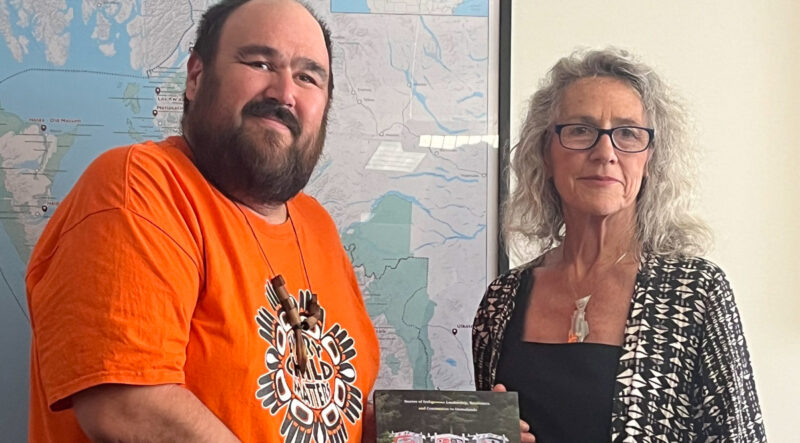First Nations want a “reset” in aquaculture consultations
Future of the salmon aquaculture industry in British Columbia will likely only be determined sometime next year after more consultations
By Fabian Dawson
SeaWestNews
The Federal Government has officially told salmon farmers in British Columbia that the future of their industry will likely only be determined sometime next year after more consultations with First Nations, coastal communities and other stakeholders.
Federal Fisheries Minister Joyce Murray was originally scheduled to present options for her Open-Net Pen Transition Plan for salmon aquaculture in BC last month.
“To respond to requests from First Nations, industry, and stakeholders, we are extending consultation on the open-net pen aquaculture transition to all interested parties through the summer,” the Aquaculture Management Division of the Department of Fisheries and Oceans (DFO) said.
The extension involves two phases, the first of which is to run this summer to ensure that all parties are “thoroughly engaged and consulted in discussions related to potential outcomes of a transition plan.”
The second phase to run from October to January next year is to provide additional opportunities “for more targeted engagement on an as-needed basis.”
SeaWestNews originally reported on the potential for extended consultations on May 31 when the Surrey Board of Trade called on Minister Murray to rein in her plans to shut down salmon farms in BC and instead come up with a pathway that will preserve Indigenous rights, protect aquaculture jobs and promote the Blue Economy.
Formal engagement on the Transition Plan began between DFO, the salmon farmers, First Nations, and other stakeholders in July 2022 after which the government released a “what we heard” report that was roundly criticized by both industry and its detractors.
This extension comes after months of repeated asks to the federal government for additional engagement time for this critical transition file that heavily impacts coastal communities in BC, said the BC Salmon Farmers Association (BCSFA) in a statement.
“We are taking the coming days to review the new process and phases and what that means for our members regarding engagement opportunities and deliverables,” said Brian Kingzett, Executive Director of the BC Salmon Farmers Association.
“We are still concerned that the process, if not carried out properly, will fail to produce a responsible Transition Plan that addresses Rightsholder First Nations’ call for a whole-of-government approach and will take the time to understand the feedback presented by our members in terms of feasibility, timelines, and business certainty.”
The Coalition of First Nations for Finfish Stewardship (FNFSS) said it wants to see more direct collaboration with Ottawa in the extended consultation process.
“We hope this extension will actually lead to a reset into the whole transition process,” coalition spokesperson Dallas Smith told SeaWestNews.
“Given the weight of the potential impact this transition plan will have economically and socially on our communities, these negotiations and consultations must be on a government-to-government basis,” said Smith.
“It is our hope that this Transition Plan extension will go hand-in-hand with our call for the federal government to lead an all-of-government process, including thorough social and economic impact analyses in the various coastal communities that work with the sector, prior to any transition of finfish aquaculture in our waters,” the Coalition said in a statement.
“By granting this extension, we feel our voices are beginning to be heard in Ottawa.”
The coalition comprises 17 BC First Nations which have agreements for farming salmon in their territories resulting in 78% of all salmon farmed in the province falling under a beneficial partnership with a First Nation.
While the opportunity to sustainably produce more salmon in Canada is unparalleled in the world the Liberal government has been unduly influenced by aquaculture detractors and activists rather than relying on science and traditional indigenous knowledge to grow the industry, a recent Indigenous conference in Vancouver heard.
There are now several legal challenges mounted by First Nations, aquaculture service and supply companies, and salmon farmers, over the decisions to shut down fish farms in British Columbia’s Discovery Islands.
Minister Murray was warned by her senior staff that there is not enough evidence to substantiate her decision to shut down the 15 salmon farms in the Discovery Islands, SeaWestNews reported this week.
The Transition plan will impact 79 other open-net farms which have been licensed to operate till next June.
Twitter image of Dallas Smith from the Coalition of First Nations for Finfish Stewardship with Federal Fisheries Minister Joyce Murray

